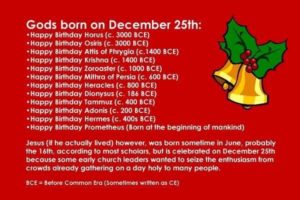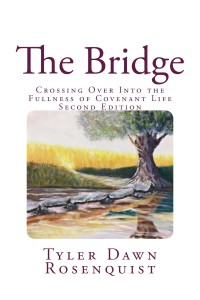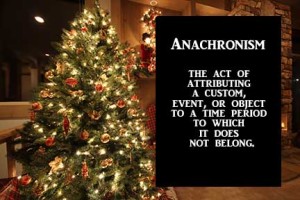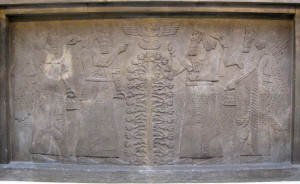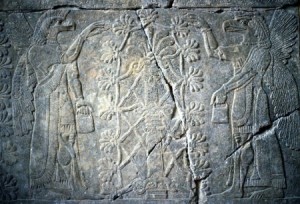Are Easter and Christmas really based upon Babylonian (or any other) paganism? A collection of research articles.
Read this first part carefully:
Ministry 101: No matter how carefully or clearly anyone expresses themselves, their intentions, and their beliefs, others will always use what you say to justify what they decide to do. If it happened to Yeshua/Jesus, Moses, Paul (who actually wasn’t all that clear), Peter, John, etc…then it will be doubly true for the rest of us. I haven’t endorsed Christmas, nor do I condemn those who celebrate. My one and only goal has been to clean up the house of God and our witness. When we distribute falsehoods in service of an agenda (and trying to take down Christmas and Easter are HUGE money-making agendas and even idols within some crowds) then we are playing by the rules of the world and we are destroying our credibility. People deserve the respect of being presented, not with manipulative horror stories of dubious authenticity, but the truth so that they can work out what they are going to do with God. When we strip them of that ability, we are subverting the authority of the Holy Spirit. I love the Body of Messiah. I love the Gospel. But I refuse to oppose anything with lies and bad information. God doesn’t need me to do that in order to accomplish His will. He desires we be truthful, that we encourage people toward righteousness, hold them responsible when they need to be held accountable and then to get out of His way. Just FYI, as a free ministry, I in no way profit from any of this. My goal isn’t to prove that Christmas and Easter aren’t pagan, but to take out the trash that is tossed around twice a year by people who should instead be committed to the truth. I give them the truth so that they make make their own choices, free from manipulation and propaganda.
I believe sometimes that our desire to control the outcome (when people are committed to getting others to stop celebrating C&E in this case, at any cost) leads us to fearfully resort to the world’s tactics. But it isn’t our job to control anyone–Yahweh doesn’t even try to control us like that so how dare we with others?
*************
An increasing number of Hebrew Roots ministries are backing down from, and retracting, the once very common teachings about the hypothetical ancient pagan origins of Christmas and Easter. However, the memes and googled pages that lack, and sometimes falsify, any sort of substantiation for their supposed archaeological claims are probably never going away. People lifted them long before the ministries retracted them. It’s a veritable pandora’s box. And people are willing to pour huge amounts of money into ministries that support and promote this, so it will never go away entirely.
So, twice a year, a month before Christmas and a month before Easter, I have posted a list of the research from myself and some others addressing a lot of the Easter/Ishtar accusations and the Tammuz/Lent misunderstanding, where we actually probably got colored eggs (from the Jews and fron fasting, not the pagans), etc. I decided in 2019 to just go ahead and make a big note of it so people could access it whenever they wanted to but then Facebook discontinued notes in October so I had to put this all here instead. This is provided for informational purposes, and I hope no one will force this stuff onto other people’s private walls and embarrass them. I don’t work that way and so I pray you won’t use my (or anyone else’s) research that way either. Share to your own social media platforms, if you so desire, but in my experience–jumping onto someone’s meme with a thousand likes where they are feeling really knowledgable and like they are doing a service to God and publicly humiliating them just doesn’t work. It almost always backfires so let’s be gentle, wise and kind. I have never forced this information on people but over the past six years, I have seen some amazing progress in this area. These claims are dying because they are being exposed to the truth.
You all probably know I don’t celebrate Christmas or Easter but do celebrate and teach the Feasts. Please don’t believe the lie circulating out there that I ever did this to “get in good with my Christian friends and family” because they really have never seemed to care whether I celebrate or not and I move so often that I never have any friends to speak of who would care either. I stumbled across this information accidentally while researching the defiling of the Temple back in early 2015. As I studied Babylonian, Assyrian, Hittite, Egyptian and Canaanite mythologies, I stumbled across the startling fact that I couldn’t substantiate a single thing I had ever heard. When I moved on into Gero-Roman times, I also came up empty on the Mithraic and Saturnalian claims. In fact, I recently discovered that there were no claims whatsoever that Christmas had pagan roots until the 12th century. I absolutely will discuss this stuff with anyone else who has read the source material I cite. But I will ask if the material has been read so that we are sure to be on equal footing. I will not argue with opinions when we have actual facts available. This is too emotional a subject, and it is needlessly divisive for all the wrong reasons. I have ministered to people who have ruined their families over this, and even their marriages.
In general, people often just honestly don’t know how to discern a good from a bad source and so books with titles like, “101 Facts About Christmas” are mistaken for actual researched and verified works of scholarship. In actuality, anyone can publish a book that says anything these days–and you can call anything a fact. No one is going to do anything about it. The only thing you can do is refuse to pass along anything that does not pass archaeological muster, and to learn to ask polite questions about people’s sources. In general, they won’t have anything–and I don’t say this to be unkind, it hasn’t honestly occurred to them that they should have proof, or that proof is anything other than “it looks legit to me” or “it’s obvious” or “my teacher says it is true.” But 21st-century monotheists without a shared cultural worldview will never be able to correctly judge or understand anything ancient based on our modern context. People hear these things from someone they love and respect, and so you have to be careful when challenging it. Good people get caught up in believing things without asking for proof if enough people are saying it–there is always the illusion of credibility in numbers. But if we are going to teach people that they are pagans for doing something, we need to have more than opinions. This was a death penalty offense in ancient Israel, and facts were required to make such an accusation.
If you want something added to the list, please send it to me. I will only consider material that actually has legitimate sources cited–I am not likely to watch any video or listen to any podcast that isn’t from a recognized expert. Too many videos and podcasts and googles pages come with grandiose claims but isn’t enough to claim “Tertullian said such and such” without a reference to exactly where I can find it. I verify everything. (Just FYI, Tertullian never said anything about Christmas because it didn’t exist during his life).
Nimrod teachings
On my radio show for kids (airing daily on I Will Gather You Radio and weekends on Hebrew Nation Radio), we covered Nimrod as part of exploring Genesis verse by verse (although that’s going to have to change when we get to Lot and his daughters) but these teachings are still entirely based on scholarly, peer-reviewed materials:
Nimrod and the Bible https://contextforkids.com/2022/05/02/episode-56-nimrod-and-the-bible
Nimrod: The Man, the Myths, and the Legends https://contextforkids.com/2022/05/09/episode-57-nimrod-the-man-the-myths-and-the-legends/
Christmas ones are on top, Easter below.
NEW! (2023) Christmas, Paganism, and Church History— https://fyreis.substack.com/p/christmas-paganism-and-church-history?
NEW! (2023)–Challenging December on Trial—https://www.youtube.com/live/RiE9DplP7Ro?si=eWqtE3g615WBfBZA and https://www.youtube.com/live/fLwcJ9y_vpI?si=_ARvFxSExZu9pqKc
NEW! From an atheist with a Masters in History who is trying to clean up the misinformation spread by his fellow atheists https://historyforatheists.com/2020/12/pagan-christmas/
NEW! Are Christmas and Mithras related? https://historyforatheists.com/2016/12/the-great-myths-2-christmas-mithras-and-paganism/
NEW! Just How Pagan is Christmas really? https://talesoftimesforgotten.com/2019/12/08/just-how-pagan-is-christmas-really/
NEW! Origin of Christmas Trees https://talesoftimesforgotten.com/2018/12/05/the-origins-of-the-christmas-tree/
NEW! I hate Santa Claus, personally, but this is interesting https://talesoftimesforgotten.com/2019/12/07/the-long-strange-fascinating-history-of-santa-claus/
How do I personally feel about Christmas and Easter? (Don’t believe the lies and “OPINIONS” out there, get it from my own mouth, er, fingers) http://theancientbridge.com/2016/02/so-what-about-christmas-and-easter-from-my-rewrite-of-the-bridge-crossing-over-into-the-fullness-of-covenant-life/
My friend David Wilber wrote an article addressing the controversy https://davidwilber.me/articles/should-christians-celebrate-christmas
Confronting the Atheist “Many gods were born on Dec 25th” claim. (Yes I know December 25th isn’t Messiah’s birthday either but let’s not pass around Atheist propaganda) http://theancientbridge.com/2017/10/q-how-many-pagan-gods-were-born-of-virgins-or-even-born-on-december-25th-a-zero/
And another on the same topic by James-Michael Smith https://www.discipledojo.org/blog/pagan-jesus
Were Horus and Osiris really born on December 25th? http://theancientbridge.com/2016/01/this-is-the-beginning-of-months-for-you-egyptian-calendars-the-birthdays-of-the-gods-and-why-goshen-was-the-best-of-the-land/
What is Jeremiah 10 actually talking about? Should we twist Scripture to fit our anti-Christmas (or any) agendas? http://theancientbridge.com/2015/10/confronting-the-memes-pt-7-did-jeremiah-condemn-christmas-trees-or-are-we-being-anachronistic/
I covered the topic of whether Jeremiah and Isaiah were talking about Christmas trees in their idol polemics on my radio show last year http://theancientbridge.com/2019/12/episode-39-isaiah-and-the-messiah-part-6-441-23-jer-10-habbakuk-2-and-christmas-trees/
A balanced look at the origins of Christmas and the modern ethical dilemmas with celebrating https://www.derekpgilbert.com/2018/12/23/merry-non-pagan-christmas
One on December 25th
https://triablogue.blogspot.com/2008/12/december-25-and-paganism.html
Hippolytus, in the third century, made a comment about December 25 being the date of the birth of Messiah in his commentary on Daniel. This article explores his comment and context further. Please note, this is not posted here as a defense of that date but as historical context to the date. https://www.facebook.com/groups/233047447490355/permalink/581281752666921?sfns=mo
Is Christmas really tied to Sol Invictus? https://web.archive.org/web/20140721141415/http://chronicon.net/blog/christmas/sol-invictus-evidently-not-a-precursor-to-christmas/
Are Obelisks (or Christmas trees for that matter) really Phallic symbols? http://theancientbridge.com/2015/06/confronting-pseudo-archaeological-memes-pt-2-are-obelisks-really-well-you-know/
This is actually well researched and I am familiar with many of his cited sources and the scholarship of the works he cites https://web.archive.org/web/20170128161856/http://historum.com/blogs/sankari/621-december-25-no-connection-tammuz-saturnalia-sol-invictus-mithras.html
How did the early Church come up with December 25th? Well, it’s actually pretty interesting https://www.biblicalarchaeology.org/daily/biblical-topics/new-testament/how-december-25-became-christmas/
Is Christmas based on Saturnalia? https://www.idolkiller.com/post/is-christmas-based-on-saturnalia
Usener’s Christmas – an article by Roman Historian Stephen Hijmans, an undisputed expert in Roman history and all things related to Sol Invictus. https://www.academia.edu/987479/Useners_Christmas_A_Contribution_to_the_Modern_Construct_of_Late_Antique_Solar_Syncretism_in_M._Espagne_and_P._Rabault-Feuerhahn_edd._Hermann_Usener_und_die_Metamorphosen_der_Philologie._Wiesbaden_Harrassowitz_2011._139-152
Dr Heiser’s take on whether Christmas is pagan https://nakedbiblepodcast.com/podcast/naked-bible-195-is-christmas-a-pagan-holiday/
and a transcript of the podcast here: http://nakedbiblepodcast.com/wp-content/uploads/2018/01/NB-195-Transcript.pdf
Easter/Lent articles
NEW!! From an atheist with a Masters in History who is trying to clean up the misinformation spread by his fellow atheists https://historyforatheists.com/2017/04/easter-ishtar-eostre-and-eggs/
Was there really an Ishtar Sunday? Did the Queen of heaven dip eggs in baby blood? http://theancientbridge.com/2015/10/who-was-the-queen-of-heaven-and-did-she-really-dip-eggs-in-the-blood-of-infants-ezekiel-8-in-context-part-2/
Is Lent related to Tammuz? What do we know about Tammuz? http://theancientbridge.com/2015/09/who-was-tammuz-and-why-and-when-were-the-women-weeping-for-him-ez-8-from-the-ancient-near-eastern-context/
Did we get Hot Cross Buns from Ishtar? http://theancientbridge.com/2016/04/wwie-what-would-ishtar-eat-baking-cakes-for-the-queen-of-heaven-jeremiah-7-in-context-part-2/
Atheists debunking the Eostre/Ishtar myth. https://historyforatheists.com/2017/04/easter-ishtar-eostre-and-eggs
A balanced, responsible article relating the origins of Easter and the Passover vs Resurrection question: http://theancientbridge.com/wp-content/uploads/2019/12/Americas_Favorite_Holidays_Candid_Histories_-_3._Easter-1.pdf
Is Easter from Ishtar? by Tim Hegg https://torahresource.com/does-easter-come-from-ishtar/
From an admitted pagan who actually does some really creditable research into her own religion https://bellejar.ca/2013/03/28/easter-is-not-named-after-ishtar-and-other-truths-i-have-to-tell-you/
Another pagan who went looking for deep roots and didn’t find them http://cavalorn.livejournal.com/502368.html?thread=7943520
How abstaining from eggs gave the world Easter eggs–after having chickens for two years this made total sense. http://www.christianitytoday.com/history/2010/february/how-fast-of-lent-gave-us-easter-eggs.html
How the 33rd Day of the Counting of the Omer might have given us egg hunts (I learned a lot of ancient near eastern context from the book “An Egg at Easter” by Venetia Newell – impeccably researched and very easily had online). https://www.facebook.com/tyler.rosenquist/posts/10213621802363307
Miscellaneous articles
A very well researched video from Andre-Philippe Therrien covering the problem with using Hislop’s The Two Babylons, and all books based on it, as sources https://youtu.be/MM3rhY5vGPc
Before anyone counters with Hislop or any works based on Hislop (which would be anything making Nimrod associations), please read this article from Ralph Woodrow, who made a career, and a lot of money, off of writing a book he never researched himself (called Mystery Babylon) based entirely on Hislop’s writings. http://www.equip.org/article/the-two-babylons/
Everything we do know about Nimrod historically and in literature throughout the ages. Everything else is late date urban legends. Van der Toorn is an incredible scholar. http://www.godawa.com/chronicles_of_the_nephilim/Articles_By_Others/Van_der_Toorn-Nimrod_before_and_after_the_Bible.pdf
Does neo-paganism have deep roots, as many adherents claim? A great and honest article by a neo-pagan http://www.patheos.com/blogs/allergicpagan/2015/06/07/a-brief-history-of-neo-paganism/
Excellent scholarly book on the history of the Christian calendar and celebrations https://www.amazon.com/dp/0391041231
How can we tell if an observance is pagan, or just cultural? http://theancientbridge.com/2015/12/pagan-or-cultural/
Resources from Matthew Higdon (I haven’t checked out most of these but I am very familiar with some of the scholars)
For Christmas:
Tom Holland, “The myth of ‘pagan’ Christmas,” Unherd: https://unherd.com/2020/12/the-myth-of-pagan-christmas
